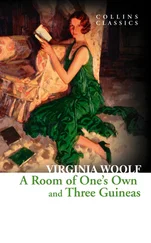Virginia Woolf - Night and Day
Здесь есть возможность читать онлайн «Virginia Woolf - Night and Day» — ознакомительный отрывок электронной книги совершенно бесплатно, а после прочтения отрывка купить полную версию. В некоторых случаях можно слушать аудио, скачать через торрент в формате fb2 и присутствует краткое содержание. Жанр: literature_20, foreign_prose, Зарубежные любовные романы, на английском языке. Описание произведения, (предисловие) а так же отзывы посетителей доступны на портале библиотеки ЛибКат.
- Название:Night and Day
- Автор:
- Жанр:
- Год:неизвестен
- ISBN:нет данных
- Рейтинг книги:3 / 5. Голосов: 1
-
Избранное:Добавить в избранное
- Отзывы:
-
Ваша оценка:
- 60
- 1
- 2
- 3
- 4
- 5
Night and Day: краткое содержание, описание и аннотация
Предлагаем к чтению аннотацию, описание, краткое содержание или предисловие (зависит от того, что написал сам автор книги «Night and Day»). Если вы не нашли необходимую информацию о книге — напишите в комментариях, мы постараемся отыскать её.
Night and Day — читать онлайн ознакомительный отрывок
Ниже представлен текст книги, разбитый по страницам. Система сохранения места последней прочитанной страницы, позволяет с удобством читать онлайн бесплатно книгу «Night and Day», без необходимости каждый раз заново искать на чём Вы остановились. Поставьте закладку, и сможете в любой момент перейти на страницу, на которой закончили чтение.
Интервал:
Закладка:
“She is NOT his wife,” Aunt Celia interrupted.
“I’ve never heard anything so detestable!” Mrs. Hilbery wound up, striking her fist on the arm of her chair. As she realized the facts she became thoroughly disgusted, although, perhaps, she was more hurt by the concealment of the sin than by the sin itself. She looked splendidly roused and indignant; and Katharine felt an immense relief and pride in her mother. It was plain that her indignation was very genuine, and that her mind was as perfectly focused upon the facts as any one could wish – more so, by a long way, than Aunt Celia’s mind, which seemed to be timidly circling, with a morbid pleasure, in these unpleasant shades. She and her mother together would take the situation in hand, visit Cyril, and see the whole thing through.
“We must realize Cyril’s point of view first,” she said, speaking directly to her mother, as if to a contemporary, but before the words were out of her mouth, there was more confusion outside, and Cousin Caroline, Mrs. Hilbery’s maiden cousin, entered the room. Although she was by birth an Alardyce, and Aunt Celia a Hilbery, the complexities of the family relationship were such that each was at once first and second cousin to the other, and thus aunt and cousin to the culprit Cyril, so that his misbehavior was almost as much Cousin Caroline’s affair as Aunt Celia’s. Cousin Caroline was a lady of very imposing height and circumference, but in spite of her size and her handsome trappings, there was something exposed and unsheltered in her expression, as if for many summers her thin red skin and hooked nose and reduplication of chins, so much resembling the profile of a cockatoo, had been bared to the weather; she was, indeed, a single lady; but she had, it was the habit to say, “made a life for herself,” and was thus entitled to be heard with respect.
“This unhappy business,” she began, out of breath as she was. “If the train had not gone out of the station just as I arrived, I should have been with you before. Celia has doubtless told you. You will agree with me, Maggie. He must be made to marry her at once for the sake of the children – ”
“But does he refuse to marry her?” Mrs. Hilbery inquired, with a return of her bewilderment.
“He has written an absurd perverted letter, all quotations,” Cousin Caroline puffed. “He thinks he’s doing a very fine thing, where we only see the folly of it… The girl’s every bit as infatuated as he is – for which I blame him.”
“She entangled him,” Aunt Celia intervened, with a very curious smoothness of intonation, which seemed to convey a vision of threads weaving and interweaving a close, white mesh round their victim.
“It’s no use going into the rights and wrongs of the affair now, Celia,” said Cousin Caroline with some acerbity, for she believed herself the only practical one of the family, and regretted that, owing to the slowness of the kitchen clock, Mrs. Milvain had already confused poor dear Maggie with her own incomplete version of the facts. “The mischief’s done, and very ugly mischief too. Are we to allow the third child to be born out of wedlock? (I am sorry to have to say these things before you, Katharine.) He will bear your name, Maggie – your father’s name, remember.”
“But let us hope it will be a girl,” said Mrs. Hilbery.
Katharine, who had been looking at her mother constantly, while the chatter of tongues held sway, perceived that the look of straightforward indignation had already vanished; her mother was evidently casting about in her mind for some method of escape, or bright spot, or sudden illumination which should show to the satisfaction of everybody that all had happened, miraculously but incontestably, for the best.
“It’s detestable – quite detestable!” she repeated, but in tones of no great assurance; and then her face lit up with a smile which, tentative at first, soon became almost assured. “Nowadays, people don’t think so badly of these things as they used to do,” she began. “It will be horribly uncomfortable for them sometimes, but if they are brave, clever children, as they will be, I dare say it’ll make remarkable people of them in the end. Robert Browning used to say that every great man has Jewish blood in him, and we must try to look at it in that light. And, after all, Cyril has acted on principle. One may disagree with his principle, but, at least, one can respect it – like the French Revolution, or Cromwell cutting the King’s head off. Some of the most terrible things in history have been done on principle,” she concluded.
“I’m afraid I take a very different view of principle,” Cousin Caroline remarked tartly.
“Principle!” Aunt Celia repeated, with an air of deprecating such a word in such a connection. “I will go to-morrow and see him,” she added.
“But why should you take these disagreeable things upon yourself, Celia?” Mrs. Hilbery interposed, and Cousin Caroline thereupon protested with some further plan involving sacrifice of herself.
Growing weary of it all, Katharine turned to the window, and stood among the folds of the curtain, pressing close to the window-pane, and gazing disconsolately at the river much in the attitude of a child depressed by the meaningless talk of its elders. She was much disappointed in her mother – and in herself too. The little tug which she gave to the blind, letting it fly up to the top with a snap, signified her annoyance. She was very angry, and yet impotent to give expression to her anger, or know with whom she was angry. How they talked and moralized and made up stories to suit their own version of the becoming, and secretly praised their own devotion and tact! No; they had their dwelling in a mist, she decided; hundreds of miles away – away from what? “Perhaps it would be better if I married William,” she thought suddenly, and the thought appeared to loom through the mist like solid ground. She stood there, thinking of her own destiny, and the elder ladies talked on, until they had talked themselves into a decision to ask the young woman to luncheon, and tell her, very friendlily, how such behavior appeared to women like themselves, who knew the world. And then Mrs. Hilbery was struck by a better idea.
CHAPTER X
Messrs. Grateley and Hooper, the solicitors in whose firm Ralph Denham was clerk, had their office in Lincoln’s Inn Fields, and there Ralph Denham appeared every morning very punctually at ten o’clock. His punctuality, together with other qualities, marked him out among the clerks for success, and indeed it would have been safe to wager that in ten years’ time or so one would find him at the head of his profession, had it not been for a peculiarity which sometimes seemed to make everything about him uncertain and perilous. His sister Joan had already been disturbed by his love of gambling with his savings. Scrutinizing him constantly with the eye of affection, she had become aware of a curious perversity in his temperament which caused her much anxiety, and would have caused her still more if she had not recognized the germs of it in her own nature. She could fancy Ralph suddenly sacrificing his entire career for some fantastic imagination; some cause or idea or even (so her fancy ran) for some woman seen from a railway train, hanging up clothes in a back yard. When he had found this beauty or this cause, no force, she knew, would avail to restrain him from pursuit of it. She suspected the East also, and always fidgeted herself when she saw him with a book of Indian travels in his hand, as though he were sucking contagion from the page. On the other hand, no common love affair, had there been such a thing, would have caused her a moment’s uneasiness where Ralph was concerned. He was destined in her fancy for something splendid in the way of success or failure, she knew not which.
Читать дальшеИнтервал:
Закладка:
Похожие книги на «Night and Day»
Представляем Вашему вниманию похожие книги на «Night and Day» списком для выбора. Мы отобрали схожую по названию и смыслу литературу в надежде предоставить читателям больше вариантов отыскать новые, интересные, ещё непрочитанные произведения.
Обсуждение, отзывы о книге «Night and Day» и просто собственные мнения читателей. Оставьте ваши комментарии, напишите, что Вы думаете о произведении, его смысле или главных героях. Укажите что конкретно понравилось, а что нет, и почему Вы так считаете.












